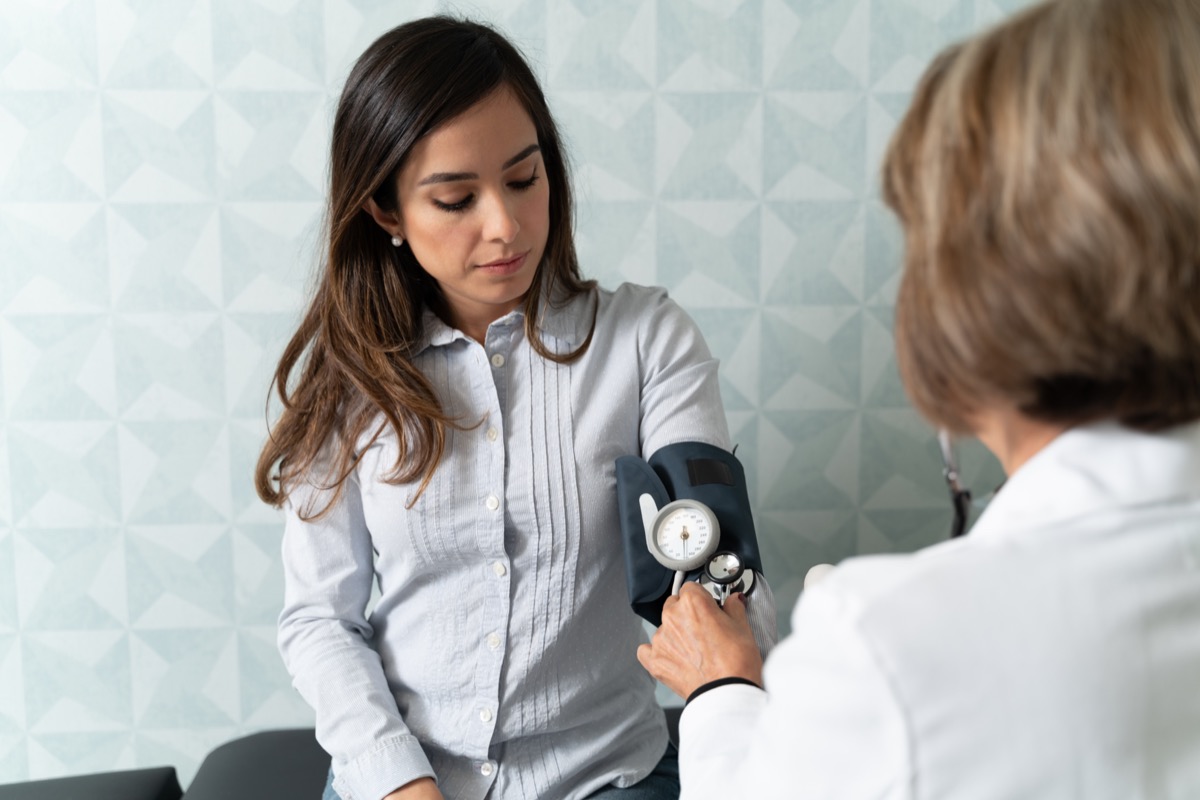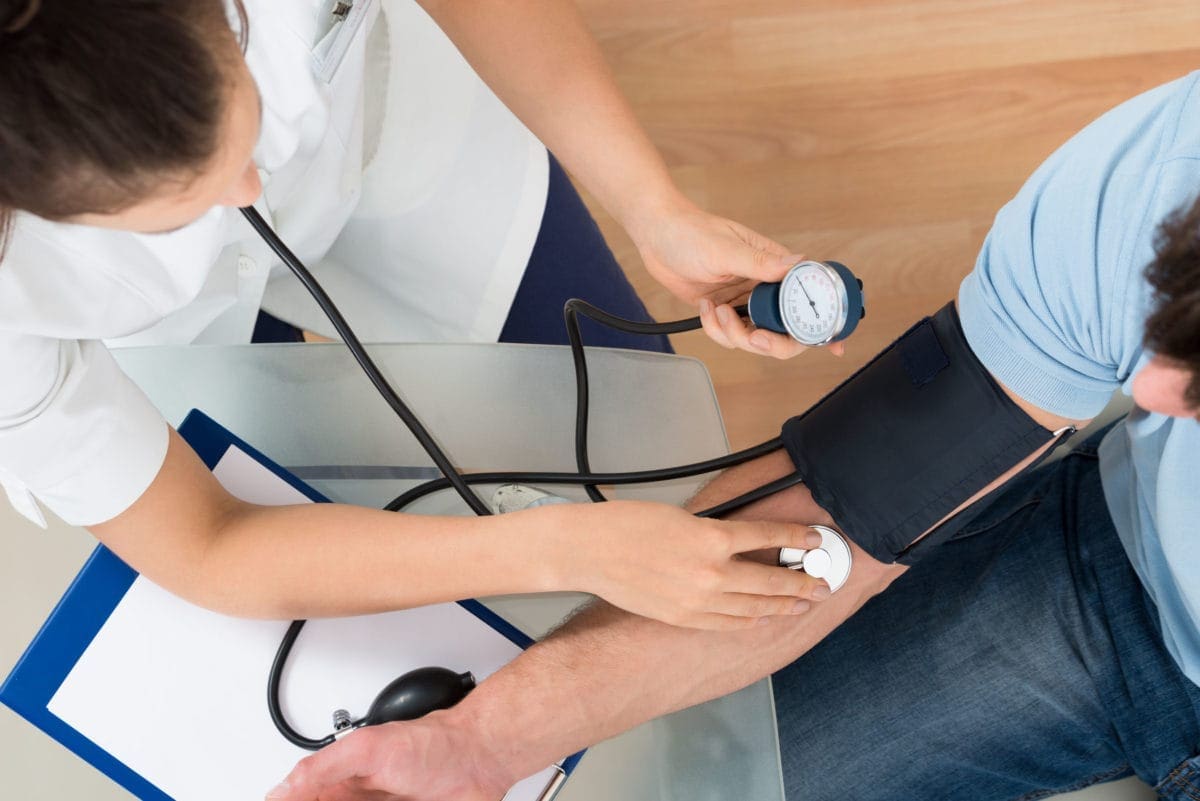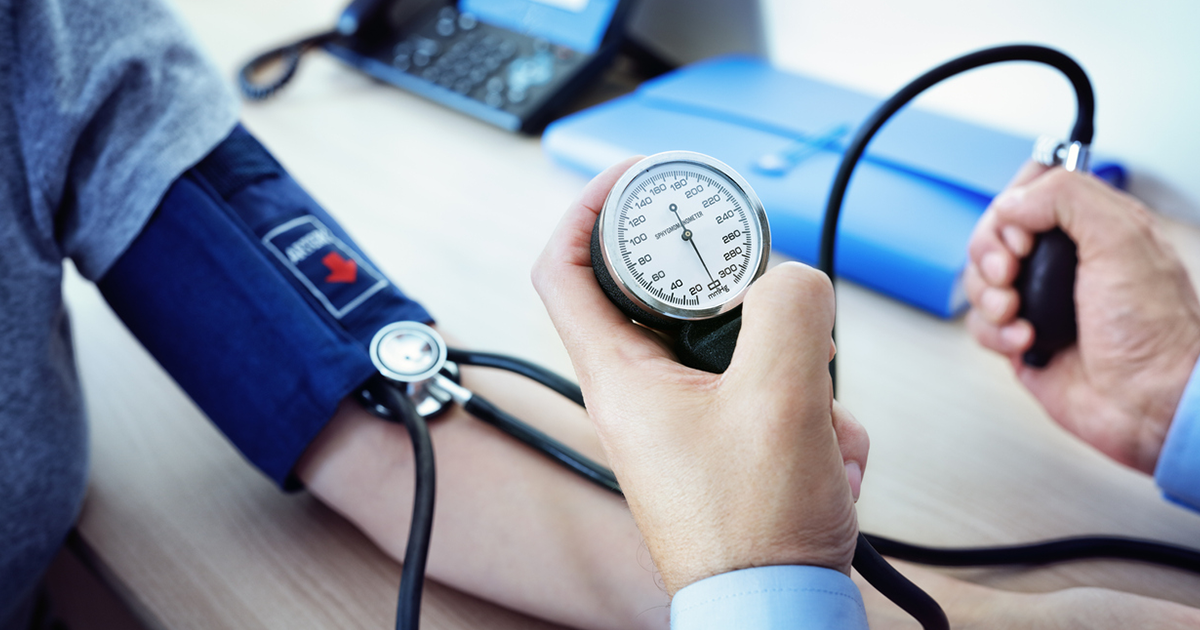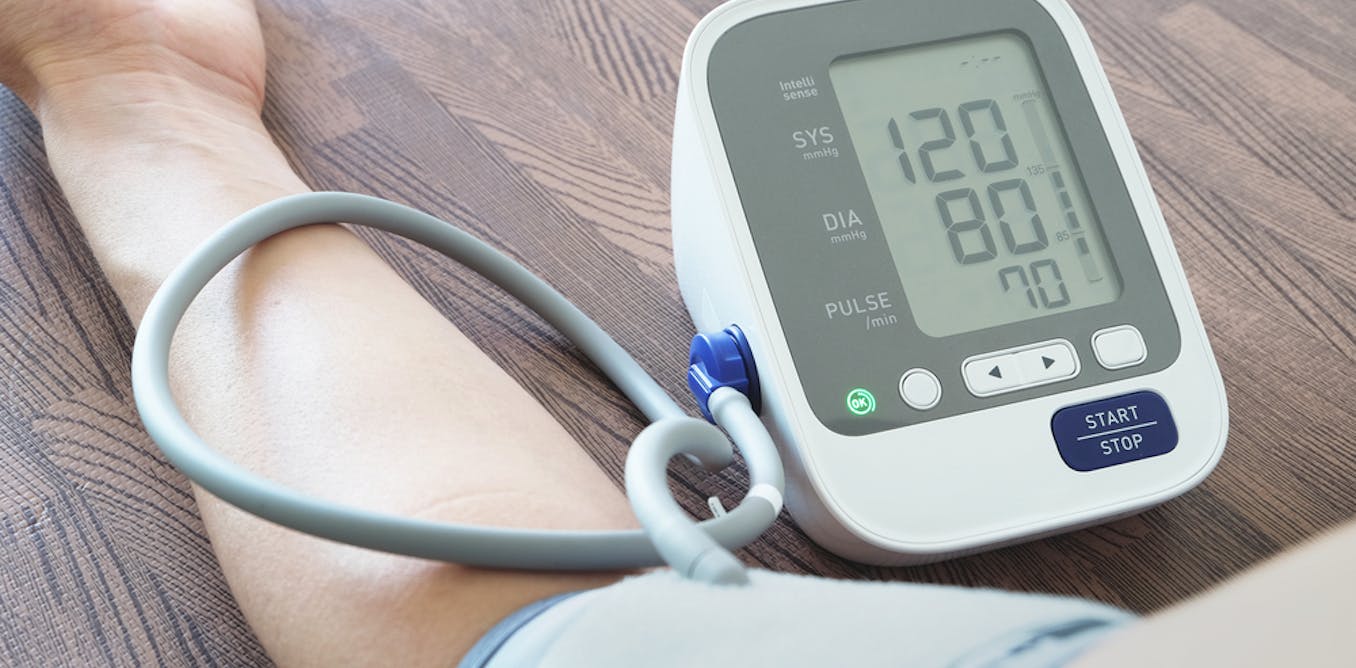Taking care of your high blood pressure could prevent illness … and maybe extend your life.
Why should you care about hypertension, otherwise known as high blood pressure? Because you may not know you have it — and it can cause serious illness or even death if left untreated.
And new research suggests lowering your hypertension might even extend your life. A new hypertension drug called rilmenidine could be repurposed to help increase a person’s lifespan, according to the new study from the University of Liverpool in the United Kingdom, in collaboration with the Institute of Translational Medicine in Switzerland and Harvard Medical School.
The study in the journal Aging Cell looked at roundworms and found that treating them with rilmenidine resulted in their living about 20 percent longer, with benefits in both young and old specimens. More research is needed to determine whether the effect would translate to humans. In the meantime, here’s what you need to know about hypertension.
1What Is Hypertension?

Simply put, hypertension is blood pressure that is higher than optimal in your veins and arteries.
More than 70 million Americans have it, according to Blue Cross Blue Shield. Hypertension is a leading cause of stroke, heart attack, kidney disease and other issues that can lead to death.
Hypertension is expressed in two numbers: The numbers represent measures of the pumping action of the heart, says Dr. Leslie Thomas, a nephrologist at Mayo Clinic. The higher number, called systolic blood pressure, is the pressure from the contraction of the heart’s left ventricle. The lower number, diastolic blood pressure, measures the relaxation of the heart’s left ventricle.
The numbers are expressed in millimeters of mercury, or mm Hg, a reference to the device used to measure blood pressure (the cuff that your doctor places around your arm to measure your blood pressure).
Normal blood pressure is a systolic pressure of less than 120 mm Hg and a diastolic pressure less than 80 mm Hg, says Dr. Raoul Hermanns, a physician in the Netherlands. It is expressed like this: 120/80 or “one twenty over eighty.” Elevated blood pressure — not quite high blood pressure — is systolic pressure of 120 to 129 and diastolic pressure less than 80. High blood pressure or hypertension is systolic pressure equal to or greater than 130 or diastolic pressure equal to or greater than 80.
Blood pressure higher than 180/120 mm Hg is considered a hypertensive emergency; if you have this measurement, you should call for medical help immediately.
2How Do You Know You Have Hypertension?

The only way to know if you have hypertension is to measure your blood pressure regularly.
The Mayo Clinic advises checking your blood pressure at least every two years, starting at age 18, and more frequently if you have risk factors such as smoking, inactivity, unhealthy diet, obesity or other conditions.
People who are 40 or older should check their blood pressure at least annually, the clinic adds. If you have hypertension, your doctor may advise even more frequent checks.
You can get a free blood pressure screening at health fairs or community clinics, at some pharmacies or other places with public blood pressure machines. Consult your doctor or pharmacist.
3Symptoms of Hypertension

If you are looking for a list of symptoms and signs of hypertension, you’re in for a surprise.
There aren’t any, according to the American Heart Association. It’s a myth that people with hypertension show symptoms such as nervousness, sweating, difficulty sleeping or facial flushing.
“The best evidence indicates that high blood pressure does not cause headaches or nosebleeds, except in the case of hypertensive crisis, a medical emergency when blood pressure is 180/120 mm Hg or higher,” the association says. “If your blood pressure is unusually high AND you have headache or nosebleed and are feeling unwell, wait five minutes and retest. If your reading remains at 180/120 mm Hg or higher, call 911.”
4How to Prevent Hypertension

“Risks for the development of primary hypertension include family history, advancing age, obesity, high sodium diet, alcohol consumption and physical inactivity,” Thomas says.
You should also check for hypertension if you are taking certain prescription or over-the-counter medications, have kidney disease or certain endocrine disorders or have a significant narrowing of the aorta or a kidney artery, he adds.
“There are several important changes you can make in your daily habits to lower your blood pressure reading,” says Dr. Leigh Simmons, general Internist at Massachusetts General Hospital and medical director of the Mass General Health Decisions Sciences Center. “Adding regular physical activity that gets your heart rate up and that you can do for at least 150 minutes a week can make a big difference in lowering your blood pressure.
“Also, reducing the amount of salt you eat on a daily basis can make a difference as well, and I recommend not adding salt to foods as well as avoiding processed foods and eating out too often,” he adds. “Finally, reducing or completely eliminating alcohol can make a difference in lowering one’s blood pressure.”
5Uncontrolled Hypertension

Uncontrolled high blood pressure thickens the walls of your arteries and makes it harder for blood to get down to your legs and toes and up to your brain, Simmons says. “We need good blood flow to those parts of the body,” he says.
High blood pressure can also weaken the walls of arterial blood vessels and cause aneurysms, which are bulges in the blood vessels that can burst and cause damage to the organs, in the chest, in the abdomen and in the brain, he adds.
In addition, “hypertension can cause heart disease, including heart failure and coronary artery disease; stroke; vision loss; kidney disease; and aneurysmal disease,” he says.
Source: https://www.eatthis.com








